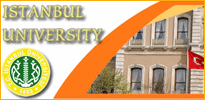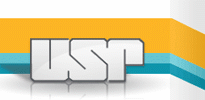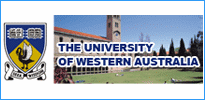Syria: Syria Education Profile 2012
2012/04/04
Syria Education Profile 2012
Despite being a low-income country with a growing population, Syria has a good basic education system. The Baath Party promotes the idea that education is one of the foundations of economic development. Since 1967, all schools, colleges, and universities have been under close government supervision by the Baath Party. The party makes sure that everyone is educated to believe in its ideals.
Enrollment
As of 2006, the literacy rate was 79.8 percent total, 86.0 percent for men and 73.6 percent for women. Most post-secondary education is state provided, but legislation passed in 2001 allows the establishment of some private universities and colleges. Resources for education have risen in absolute terms over the past decade, but it is difficult to match the rate of population growth. Showing an increase over 2002 spending, 8.6 percent of the state budget was earmarked for education in 2003. Six years of primary school for children ages 6–11 are free and compulsory, and enrollment is near 100 percent for both boys and girls.
The Educational System in Syria
The educational system in Syria was based on the old French system. Education is free in all public schools and obligatory up to the 9th grade. Schools are divided into three levels:
1st to 4th grade: Basic Education Level I (Arabic: تعليم أساسي حلقة أولى)
5th to 9th grade: Basic Education Level II (Arabic: تعليم أساسي حلقة ثانية)
10th to 12th grade: Secondary Education (Arabic: التعليم الثانوي), which is the equivalent of High School.
Final exams of the 9th grade are carried out nationally at the same time. The result of these exams determines if the student goes to the "general" secondary schools or the technical secondary schools. Technical secondary schools include industrial and agricultural schools for male students, crafts school for female students, and commercial and computer science schools for both.
At the beginning of the 11th grade, those who go to "general" secondary school have to choose to continue their study in either the "literary branch" or the "scientific branch".
The final exams of the 12th grade (the baccalaureate) are also carried out nationally and at the same time. The result of these exams determines which university, college and specialization the student goes to. To do that the student has to apply through a complicated system called Mufadalah.
Colleges charge modest fees ($10–20 a year) if the student achieves the sufficient marks in his Baccalaureate exams. If not, the student may opt to pay higher fees ($1500–3000) to enroll. There are some private schools and colleges but their fees are much higher.
Most universities in Syria follow the French model of the high education, the university stages and the academic degrees are:
First stage: the Licence awarded after 4 years to 6 years depending on the field.
Second stage: the DEA or DESS 1-2 years postgraduate degree equivalent to the Master's degree in the American-English systems.
Third stage: the doctorat 3-5 years after the DEA or an equivalent degree.
Since 1967, all schools, colleges, and universities have been under close government supervision by the Baath Party.
Curriculum
At the secondary level, the education system also includes three years of general or vocational education followed by three years of academic or vocational education. However, classes are large and facilities poor at all levels. Domestic policies emphasize engineering and medicine in Syria’s universities, with less emphasis on the arts, law, and business.
Virtual university
In September 2002, the president founded the country’s first virtual university through which students can obtain degrees from international institutions.
Computer literacy
This measure and others, such as making computer literacy mandatory at the high-school level and English- and French-language instruction compulsory in the elementary schools, have the goal of equipping students with computer and language skills in order to modernize the economy through the education system.
- Syria News
-
- AFGHANISTAN: UNWTO: International tourism – strongest half-year results since 2010
- SYRIA: Ramadan TV dramas get inspiration from Syria war
- IRAQ: Illicit antiquities trade threatening cultural heritage
- IRAQ: ‘I was sold seven times': the Yazidi women welcomed back into the faith
- BAHRAIN: Policy Differences Emerge Among Gulf States Days After Wooing President Trump
- SYRIA: Syria to Ration Imports to Rein in Soaring Foreign Exchange Rates
- Trending Articles
-
- BOTSWANA: Africa: U.S. State Department To Get Experienced Diplomat in Key Africa Post
- BURUNDI: Burundi: Govt Rejects UN Accusations of Crimes Against Humanity
- CHINA: China Invites 5 Countries As Guests For BRICS Summit
- IRAN: Saudi Arabia denies warming relations with Iran
- ISRAEL: Finance Ministry: Housing market slower in July
- QATAR: Blockaded Qatar's economy troubled, but coping











